A Guide To New Boiler Installations In Yorkshire
New Boiler Installations In Yorkshire
Everything You Need To Know
A reliable boiler is at the heart of every warm and comfortable home. Whether you’re upgrading an old system or installing a new boiler in your Yorkshire property, the process can feel overwhelming. This guide will walk you through everything you need to know about new boiler installations in Yorkshire, helping you make informed decisions and understand the process from start to finish.
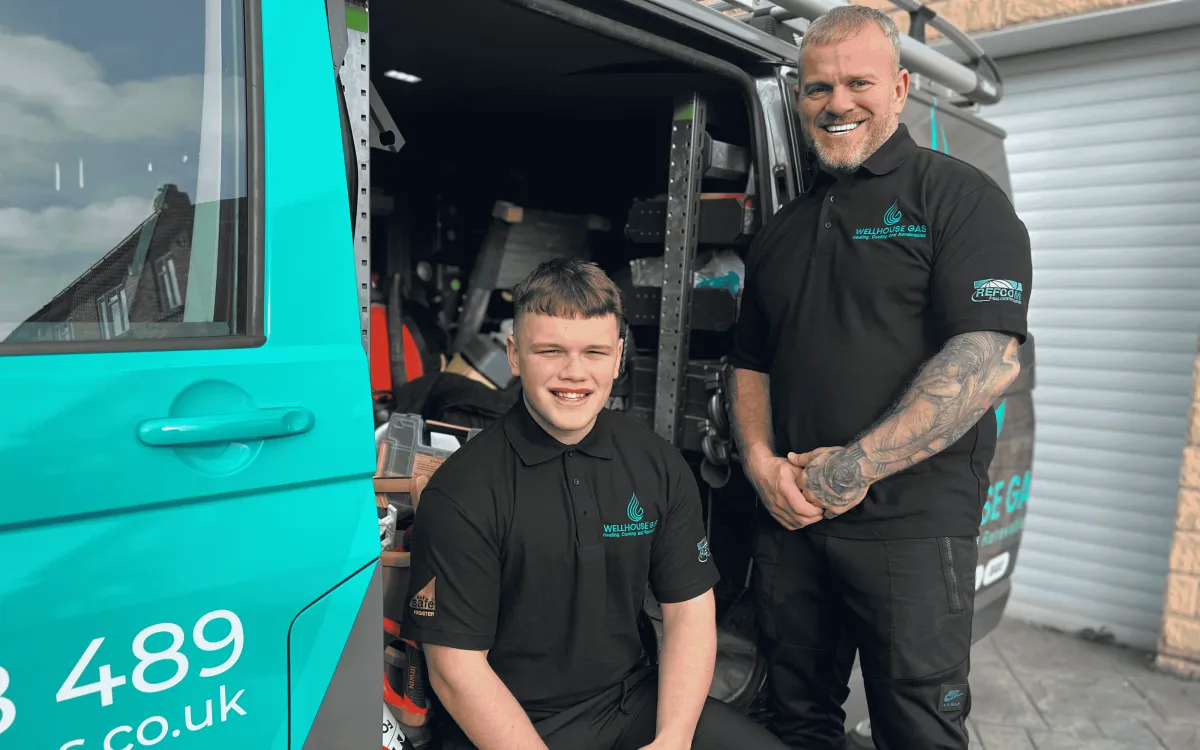
Types of Boilers and Which One is Right for You
Choosing the right boiler depends on your home, lifestyle, and heating needs. Here’s a breakdown of the main types:
1. Combi Boilers
Combi boilers are the most popular choice for modern homes. These boilers provide both heating and hot water on demand, without the need for a separate water tank or cylinder.
Pros: Compact, energy-efficient, and perfect for smaller homes.
Cons: May struggle to meet high hot water demand in larger households.
Ideal for: Flats and smaller properties with limited space.
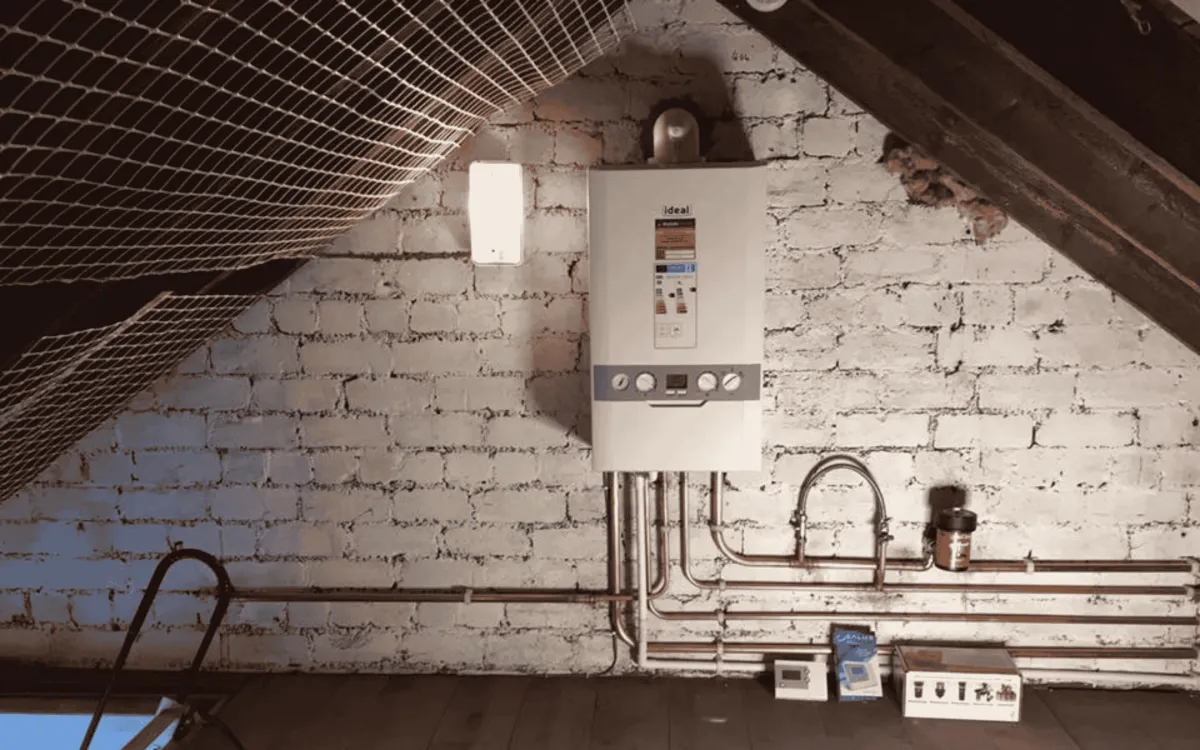

2. System Boilers
System boilers are great for homes with higher hot water needs. They require a separate hot water cylinder but no additional tank in the loft.
Pros: Reliable for homes with multiple bathrooms and better at maintaining water pressure.
Cons: Requires space for the hot water cylinder.
Ideal for: Larger homes or families with high hot water usage.
3. Regular Boilers
Regular boilers, also known as conventional or traditional boilers, are typically found in older homes. These systems use a separate hot water cylinder and a cold water tank.
Pros: Suitable for homes with existing radiator systems and high water demand.
Cons: Requires more space and isn’t as energy-efficient.
Ideal for: Older properties with an existing setup.

Which Boiler Should You Choose?
The best boiler for your home depends on the size of your property, the number of bathrooms, and your hot water usage. A heating professional can help you decide based on your specific needs.
How Much Does a New Boiler Installation Cost in Yorkshire?
Boiler installation costs in Yorkshire can vary, but here are some general price ranges to help you budget:
Typical Costs
Combi Boiler: £1,500 - £4,000 (including installation).System Boiler: £2,000 - £4,800.Regular Boiler: £2,000 - £4,500.
Factors That Affect the Cost
Boiler Type and Brand: Premium brands like Worcester Bosch or Vaillant often cost more.
Property Size: Larger homes may require higher-capacity boilers, increasing costs.
Installation Complexity: Relocating a boiler or upgrading pipework adds to the price.
Additional Features: Smart thermostats, wireless controls, or system upgrades can raise costs.
Additional Costs to Consider
Old Boiler Removal: £100 - £300.Radiator Upgrades: £100 - £500 per radiator if needed.Flue Adjustments: £100 - £400 if the system requires changes.
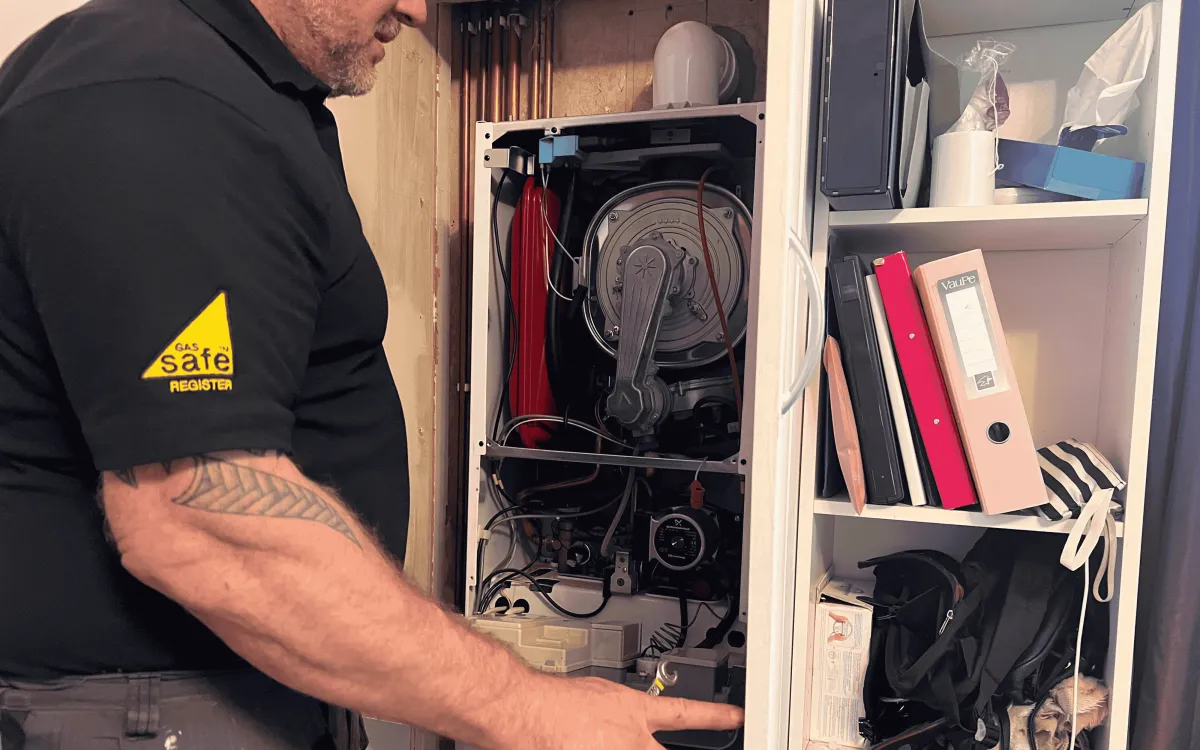
Signs You Need a New Boiler
Not sure if it’s time for a replacement? Here are some common signs:
Frequent Breakdowns: If repairs are becoming too frequent or costly, a new boiler may be more economical.
Rising Energy Bills: Older boilers are often less efficient, leading to higher energy costs.
Unusual Noises: Banging, gurgling, or whistling sounds could signal internal issues.
Leaking Boiler: Any visible leaks should be addressed immediately, and replacement may be necessary.
Boiler Age: If your boiler is over 10-15 years old, it might be time to upgrade to a more efficient model.
Choosing the Right Boiler Installer
A professional, qualified installer is essential for safety and reliability. Here’s what to look for:
Gas Safe Certification: Ensure the engineer is registered with Gas Safe, proving they’re qualified to work on gas appliances.Customer
Reviews: Look for testimonials or reviews to gauge the installer’s reliability and quality.
Clear Communication: Ask questions about warranties, timelines, and aftercare to ensure transparency.
Local Expertise: Choosing a local installer like Wellhouse Gas means faster response times and a better understanding of your area’s needs.
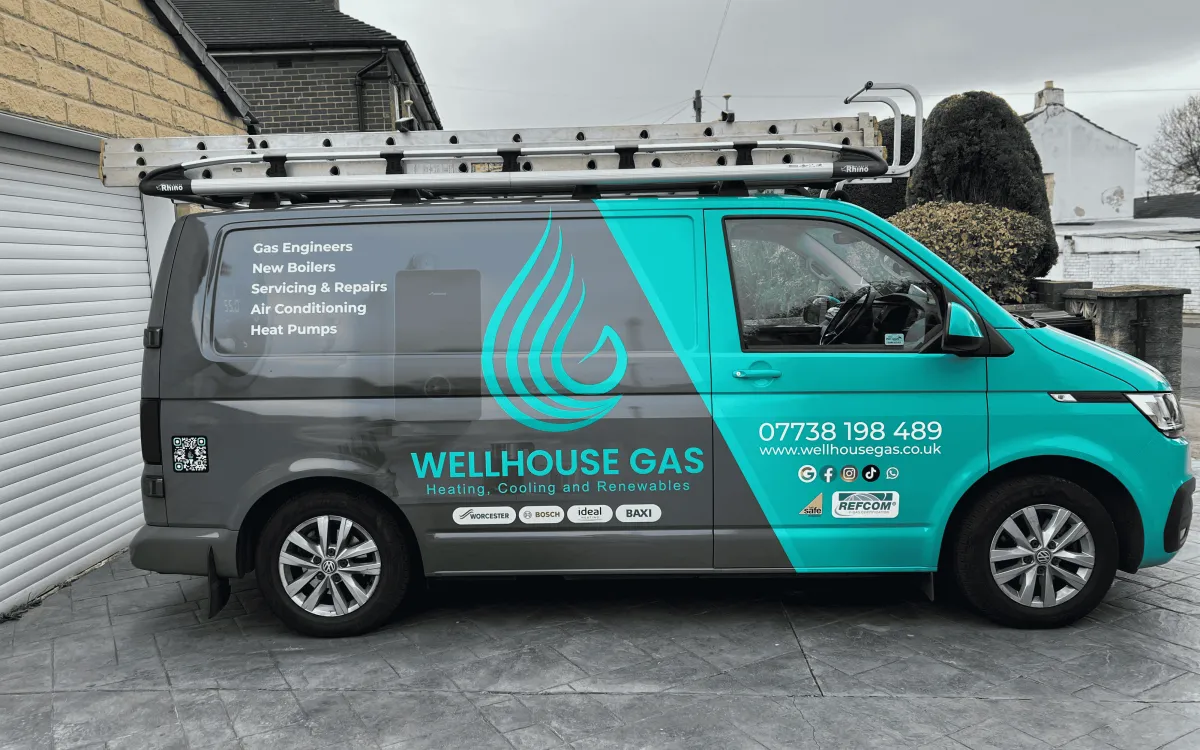
The Installation Process Explained
Here’s what to expect during a boiler installation:
Step 1: Initial Consultation
A professional engineer will assess your home, discuss your needs, and recommend the best boiler. They’ll consider factors like property size, water usage, and budget.
Step 2: Preparing for Installation
Once you agree on the boiler and quote, the engineer will schedule the installation. You may need to clear space around the current boiler for easy access.
Step 3: Installation Day
On the day, the old boiler will be removed, and the new one will be fitted. The process usually takes 1-2 days, depending on the complexity of the job.
Step 4: Testing and Handover
After installation, the engineer will test the system, ensure everything is working efficiently, and explain how to operate your new boiler.
Energy Efficiency and Long-Term Savings
Modern boilers are far more efficient than older models, helping you save on energy bills.
Benefits of Upgrading
Lower Energy Bills: A new boiler can improve efficiency by up to 30%, reducing running costs.
Reduced Carbon Footprint: Eco-friendly models like heat pumps and condensing boilers are better for the environment.
Smart Controls: Features like programmable thermostats and app controls let you optimise energy use.
Estimated Savings
Switching from an old G-rated boiler to a new A-rated model can save up to £300 a year on energy bills.

Boiler Maintenance and Aftercare
Regular maintenance keeps your boiler running smoothly. Here’s how:
Annual Servicing: Schedule a yearly service with a Gas Safe engineer to check for leaks, test efficiency, and clean components.
Check the Pressure: Ensure the boiler pressure stays within the manufacturer’s recommended range.
Bleed Radiators: Remove trapped air to keep your heating system efficient.
Monitor for Issues: Address unusual noises or performance drops promptly to avoid bigger problems.
Why Choose Wellhouse Gas for Your New Boiler Installation?
Wellhouse Gas is a family-run business based in Yorkshire, offering professional, reliable, and customer-focused service.
Experienced Engineers: With over 29 years in the trade, our Gas Safe engineers have handled thousands of boiler installations.
Fast Response: We aim to visit your home within 24 hours and complete installations efficiently.
Fair Pricing: We provide transparent quotes with no hidden costs, ensuring you know exactly what you’re paying for.
Customer Care: From flexible payment options to honest advice, we put your needs first.
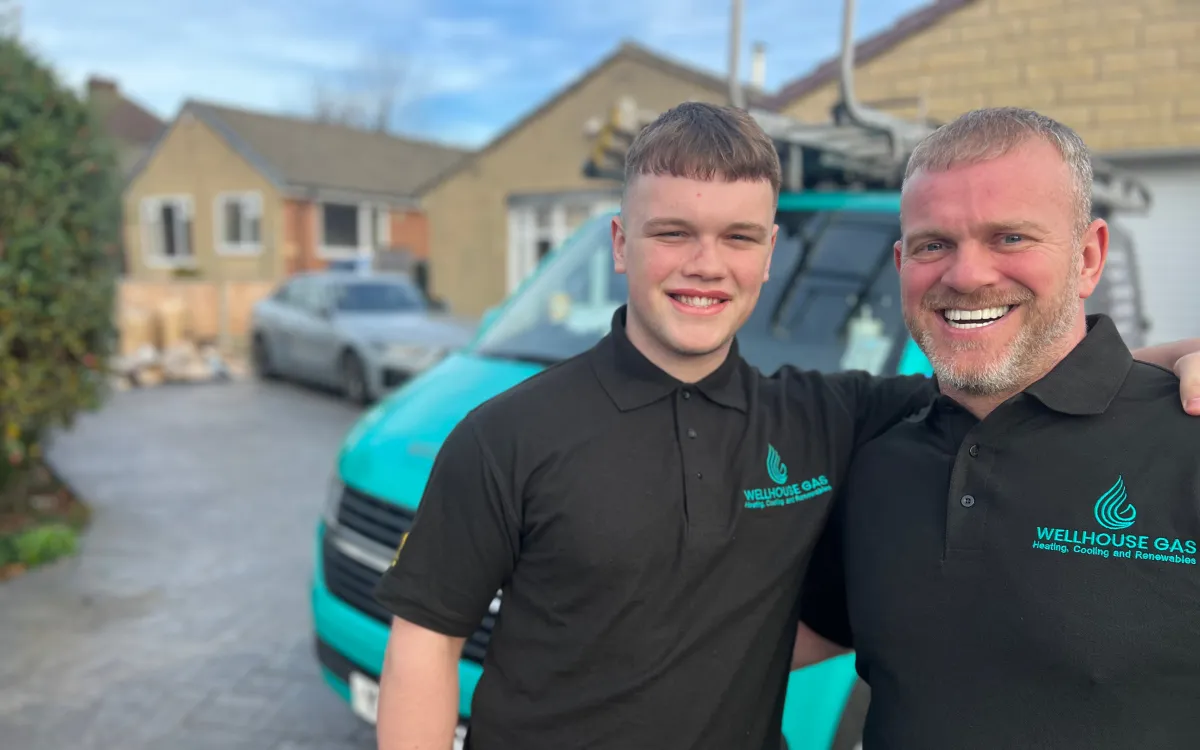
Common Questions
About New Boiler Installations
Q - How long does installation take?
A - Most installations take 1-2 days, depending on the complexity of the job and whether additional upgrades are needed.
Q - Do I need planning permission for a new boiler?
A - No, standard boiler installations don’t require planning permission.
Q - What size boiler do I need?
A - This depends on your property size and water usage. A professional engineer can calculate the best size for your needs.
Q - What’s the best time of year to replace a boiler?
A - Spring and summer are ideal as demand for heating engineers is lower, and you’re less reliant on heating.
Q - Are there any grants available?
A - The UK government offers schemes like the Boiler Upgrade Scheme for eco-friendly options like heat pumps.
Bonus Tips for Heating Efficiency and Reducing Bills
1. Use a Programmable Thermostat
A programmable thermostat allows you to set heating schedules so your boiler works only when needed.
Lower the temperature: Reducing your thermostat by just 1°C can save up to 10% on your energy bill.
Set schedules: Heat your home in the morning and evening when you’re in, and lower the temperature while you’re asleep or away.
Smart controls: Upgrade to a smart thermostat for remote control via your phone, helping you adjust heating based on your routine.
2. Bleed Your Radiators Regularly
Air trapped in radiators reduces their efficiency, making your boiler work harder.
Check for cold spots: If your radiators are warm at the bottom but cold at the top, it’s time to bleed them.
How to do it: Use a radiator key to release trapped air until water starts flowing.
3. Insulate Your Home
Proper insulation keeps heat in and reduces the load on your boiler.
Draught-proofing: Seal gaps around windows, doors, and floorboards.
Loft insulation: Ensure your loft is insulated to at least 270mm to prevent heat escaping through the roof.
Wall insulation: Cavity wall insulation can significantly reduce heat loss.
4. Service Your Boiler Annually
A well-maintained boiler is more efficient and less likely to break down.
Professional servicing: Get your boiler checked annually by a Gas Safe engineer.
Check pressure: Ensure your boiler’s pressure is within the recommended range for optimal performance.
5. Use Your Boiler’s Eco Mode
Many modern boilers have an eco mode designed to save energy.
How it works: Eco mode heats water more gradually, using less gas.
Tip: Use this mode for day-to-day heating, especially if your household doesn’t need constant hot water.
By following these tips, you can enjoy a warm home while cutting down on energy bills and reducing your carbon footprint. A small effort can lead to significant savings over time!
Conclusion
Investing in a new boiler is a big decision, but it’s one that can transform your home’s comfort, efficiency, and energy bills. By understanding the types of boilers, the costs involved, and the installation process, you’ll be well-equipped to make the best choice for your Yorkshire home.
If you’re ready to upgrade or need expert advice, contact Wellhouse Gas today. With our experienced engineers, fair pricing, and commitment to quality, we’ll ensure your home is warm,
safe, and running efficiently.

Written By: Ash Anderson
Trade Grow
A Guide To New Boiler Installation In Yorkshire
New Boiler Installations In Yorkshire - Everything You Need To Know

A reliable boiler is at the heart of every warm and comfortable home. Whether you’re upgrading an old system or installing a new boiler in your Yorkshire property, the process can feel overwhelming. This guide will walk you through everything you need to know about new boiler installations in Yorkshire, helping you make informed decisions and understand the process from start to finish.
Types of Boilers and Which One is Right for You
Choosing the right boiler depends on your home, lifestyle, and heating needs. Here’s a breakdown of the main types:

1. Combi Boilers
Combi boilers are the most popular choice for modern homes. These boilers provide both heating and hot water on demand, without the need for a separate water tank or cylinder.
Pros: Compact, energy-efficient, and perfect for smaller homes.
Cons: May struggle to meet high hot water demand in larger households.
Ideal for: Flats and smaller properties with limited space.

2. System Boilers
System boilers are great for homes with higher hot water needs. They require a separate hot water cylinder but no additional tank in the loft.
Pros: Reliable for homes with multiple bathrooms and better at maintaining water pressure.
Cons: Requires space for the hot water cylinder.
Ideal for: Larger homes or families with high hot water usage.

3. Regular Boilers
Regular boilers, also known as conventional or traditional boilers, are typically found in older homes. These systems use a separate hot water cylinder and a cold water tank.
Pros: Suitable for homes with existing radiator systems and high water demand.
Cons: Requires more space and isn’t as energy-efficient.
Ideal for: Older properties with an existing setup.
How Can We
Solve the Problem
The best boiler for your home depends on the size of your property, the number of bathrooms, and your hot water usage. A heating professional can help you decide based on your specific needs.
How Much Does a New Boiler Installation Cost in Yorkshire?
Boiler installation costs in Yorkshire can vary, but here are some general price ranges to help you budget:
Typical Costs
Combi Boiler: £1,500 - £4,000 (including installation).System Boiler: £2,000 - £4,800.Regular Boiler: £2,000 - £4,500.
Factors That Affect the Cost
Boiler Type and Brand: Premium brands like Worcester Bosch or Vaillant often cost more.
Property Size:
Larger homes may require higher-capacity boilers, increasing costs.
Installation Complexity:
Relocating a boiler or upgrading pipework adds to the price.
Additional Features:
Smart thermostats, wireless controls, or system upgrades can raise costs.
Additional Costs to Consider
Old Boiler Removal: £100 - £300.Radiator Upgrades: £100 - £500 per radiator if needed.Flue Adjustments: £100 - £400 if the system requires changes.

Signs You Need a New Boiler
Not sure if it’s time for a replacement? Here are some common signs:
Frequent Breakdowns:
If repairs are becoming too frequent or costly, a new boiler may be more economical.
Rising Energy Bills:
Older boilers are often less efficient, leading to higher energy costs.
Unusual Noises:
Banging, gurgling, or whistling sounds could signal internal issues.
Leaking Boiler:
Any visible leaks should be addressed immediately, and replacement may be necessary.
Boiler Age:
If your boiler is over 10-15 years old, it might be time to upgrade to a more efficient model.
Choosing the Right Boiler Installer
A professional, qualified installer is essential for safety and reliability. Here’s what to look for:
Gas Safe Certification:
Ensure the engineer is registered with Gas Safe, proving they’re qualified to work on gas appliances.Customer
Reviews:
Look for testimonials or reviews to gauge the installer’s reliability and quality.
Clear Communication:
Ask questions about warranties, timelines, and aftercare to ensure transparency.
Local Expertise:
Choosing a local installer like Wellhouse Gas means faster response times and a better understanding of your area’s needs.

The Installation Process Explained
Here’s what to expect during a boiler installation:
Step 1: Initial Consultation
A professional engineer will assess your home, discuss your needs, and recommend the best boiler. They’ll consider factors like property size, water usage, and budget.
Step 2: Preparing for Installation
Once you agree on the boiler and quote, the engineer will schedule the installation. You may need to clear space around the current boiler for easy access.
Step 3: Installation Day
On the day, the old boiler will be removed, and the new one will be fitted. The process usually takes 1-2 days, depending on the complexity of the job.
Step 4: Testing and Handover
After installation, the engineer will test the system, ensure everything is working efficiently, and explain how to operate your new boiler.
Energy Efficiency and Long-Term Savings
Modern boilers are far more efficient than older models, helping you save on energy bills.
Benefits of Upgrading
Lower Energy Bills: A new boiler can improve efficiency by up to 30%, reducing running costs.
Reduced Carbon Footprint:
Eco-friendly models like heat pumps and condensing boilers are better for the environment.
Smart Controls:
Features like programmable thermostats and app controls let you optimise energy use.
Estimated Savings
Switching from an old G-rated boiler to a new A-rated model can save up to £300 a year on energy bills.

Boiler Maintenance and Aftercare
Regular maintenance keeps your boiler running smoothly. Here’s how:
Annual Servicing:
Schedule a yearly service with a Gas Safe engineer to check for leaks, test efficiency, and clean components.
Check the Pressure:
Ensure the boiler pressure stays within the manufacturer’s recommended range.
Bleed Radiators:
Remove trapped air to keep your heating system efficient.
Monitor for Issues:
Address unusual noises or performance drops promptly to avoid bigger problems.
Why Choose Wellhouse Gas for Your New Boiler Installation?
Wellhouse Gas is a family-run business based in Yorkshire, offering professional, reliable, and customer-focused service.
Experienced Engineers:
With over 29 years in the trade, our Gas Safe engineers have handled thousands of boiler installations.
Fast Response:
We aim to visit your home within 24 hours and complete installations efficiently.
Fair Pricing:
We provide transparent quotes with no hidden costs, ensuring you know exactly what you’re paying for.
Customer Care:
From flexible payment options to honest advice, we put your needs first.

Common Questions
About Van Security Systems
Q - How long does installation take?
A - Most installations take 1-2 days, depending on the complexity of the job and whether additional upgrades are needed.
Q - Do I need planning permission for a new boiler?
A - No, standard boiler installations don’t require planning permission.
Q - What size boiler do I need?
A - This depends on your property size and water usage. A professional engineer can calculate the best size for your needs.
Q - What’s the best time of year to replace a boiler?
A - Spring and summer are ideal as demand for heating engineers is lower, and you’re less reliant on heating.
Q - Are there any grants available?
A -The UK government offers schemes like the Boiler Upgrade Scheme for eco-friendly options like heat pumps.
Bonus Tips for
Heating Efficiency
and Reducing Bills
1. Use a Programmable Thermostat
A programmable thermostat allows you to set heating schedules so your boiler works only when needed.
Lower the temperature:
Reducing your thermostat by just 1°C can save up to 10% on your energy bill.
Set schedules:
Heat your home in the morning and evening when you’re in, and lower the temperature while you’re asleep or away.
Smart controls:
Upgrade to a smart thermostat for remote control via your phone, helping you adjust heating based on your routine.
2. Bleed Your Radiators Regularly
Air trapped in radiators reduces their efficiency, making your boiler work harder.
Check for cold spots:
If your radiators are warm at the bottom but cold at the top, it’s time to bleed them.
How to do it:
Use a radiator key to release trapped air until water starts flowing.
3. Insulate Your Home
Proper insulation keeps heat in and reduces the load on your boiler.
Draught-proofing:
Seal gaps around windows, doors, and floorboards.
Loft insulation:
Ensure your loft is insulated to at least 270mm to prevent heat escaping through the roof.
Wall insulation:
Cavity wall insulation can significantly reduce heat loss.
4. Service Your Boiler Annually
A well-maintained boiler is more efficient and less likely to break down.
Professional servicing:
Get your boiler checked annually by a Gas Safe engineer.
Check pressure:
Ensure your boiler’s pressure is within the recommended range for optimal performance.
5. Use Your Boiler’s Eco Mode
Many modern boilers have an eco mode designed to save energy.
How it works:
Eco mode heats water more gradually, using less gas.
Tip:
Use this mode for day-to-day heating, especially if your household doesn’t need constant hot water.
By following these tips and investing in high-quality van security solutions, you can significantly reduce the risk of theft and protect your livelihood.
Conclusion
Investing in a new boiler is a big decision, but it’s one that can transform your home’s comfort, efficiency, and energy bills. By understanding the types of boilers, the costs involved, and the installation process, you’ll be well-equipped to make the best choice for your Yorkshire home.
If you’re ready to upgrade or need expert advice, contact Wellhouse Gas today. With our experienced engineers, fair pricing, and commitment to quality, we’ll ensure your home is warm,
safe, and running efficiently.
Contact Us
Service Hours
Social Media
Monday - Friday: 8:00 AM - 6:00 PM
Saturday: 8:00 AM - 3:00 PM
Sunday: Closed
Wellhouse Gas (FRN: 1022515) are an introducer appointed representative of Koze Group Ltd, a credit broker not a lender. Koze Group Ltd are authorised and regulated by the Financial Conduct Authority (FRN 811281) registered in England (08357963). We offer finance products from a panel of lenders. Credit subject to age and status.
Should you wish to make a complaint, please click on the attached link where you will also find details of our complaints procedure: https://www.hiber.com/complaints

Written By: Ash Anderson - Trade Grow
Service Hours
Monday - Friday: 8:00 AM - 6:00 PM
Saturday: 8:00 AM - 3:00 PM
Sunday: Closed
2025 | Wellhouse Gas | Sitemap
Wellhouse Gas (FRN: 1022515) are an introducer appointed representative of Koze Group Ltd, a credit broker not a lender. Koze Group Ltd are authorised and regulated by the Financial Conduct Authority (FRN 811281) registered in England (08357963). We offer finance products from a panel of lenders.
Credit subject to age and status.
Should you wish to make a complaint, please click on the attached link where you will also find details of our complaints procedure:
